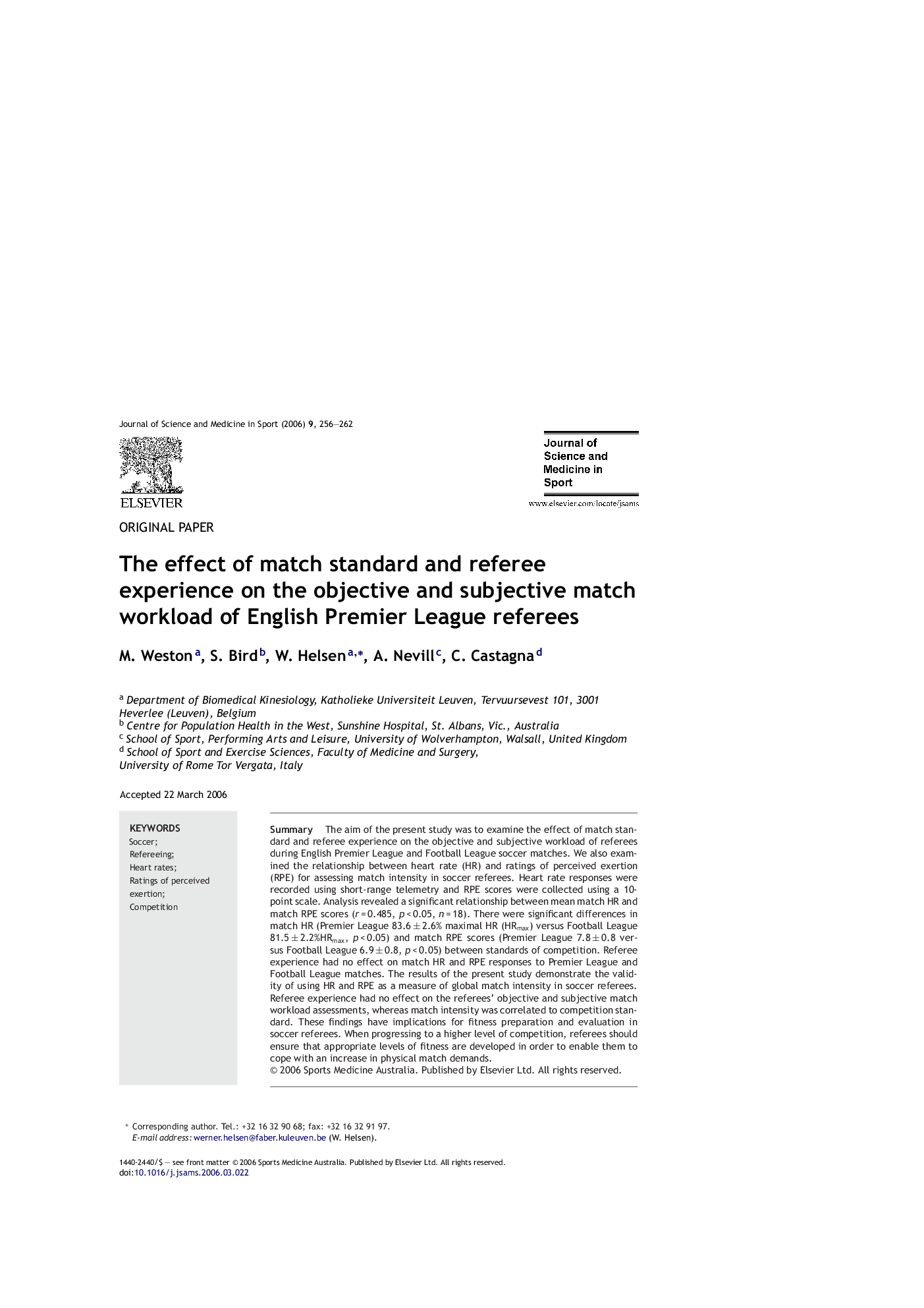| Article ID | Journal | Published Year | Pages | File Type |
|---|---|---|---|---|
| 2703482 | Journal of Science and Medicine in Sport | 2006 | 7 Pages |
SummaryThe aim of the present study was to examine the effect of match standard and referee experience on the objective and subjective workload of referees during English Premier League and Football League soccer matches. We also examined the relationship between heart rate (HR) and ratings of perceived exertion (RPE) for assessing match intensity in soccer referees. Heart rate responses were recorded using short-range telemetry and RPE scores were collected using a 10-point scale. Analysis revealed a significant relationship between mean match HR and match RPE scores (r = 0.485, p < 0.05, n = 18). There were significant differences in match HR (Premier League 83.6 ± 2.6% maximal HR (HRmax) versus Football League 81.5 ± 2.2%HRmax, p < 0.05) and match RPE scores (Premier League 7.8 ± 0.8 versus Football League 6.9 ± 0.8, p < 0.05) between standards of competition. Referee experience had no effect on match HR and RPE responses to Premier League and Football League matches. The results of the present study demonstrate the validity of using HR and RPE as a measure of global match intensity in soccer referees. Referee experience had no effect on the referees’ objective and subjective match workload assessments, whereas match intensity was correlated to competition standard. These findings have implications for fitness preparation and evaluation in soccer referees. When progressing to a higher level of competition, referees should ensure that appropriate levels of fitness are developed in order to enable them to cope with an increase in physical match demands.
